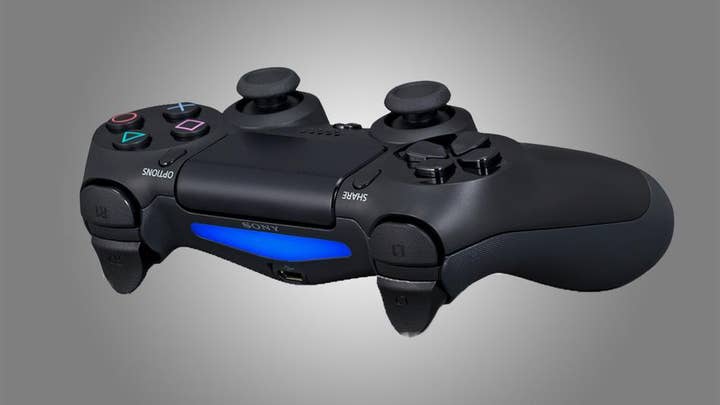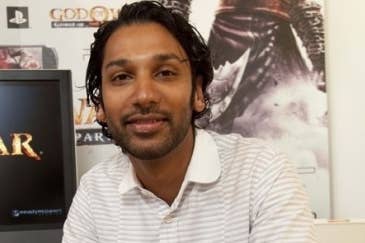Sony helping to unify console biz, says Ready at Dawn boss
Ru Weerasuriya tells us all consoles now will have to be more open; he also stresses team, not the game, as "the ultimate goal"
Ready at Dawn, known for its God of War and Daxter PSP titles, is gearing up for next-gen consoles with its first owned, original IP. Studio head Ru Weerasuriya is still keeping most details about the new project close to the vest, but in meeting with GamesIndustry International at GDC, he could barely contain his excitement. Despite the challenging market consoles now face, and the huge risks developers have to take, Weerasuriya is clearly optimistic for next-gen, led by Sony's developer-centric PS4 unveiling.
"I've not seen the industry, especially the core gaming industry, go through a period like this. Especially new hardware where the manufacturers themselves are actually reaching out and making us define what their hardware is going to be. I don't think that's ever happened. It's been an unbelievable two years, a little bit more than that even, of the back and forth and getting to the point where we felt like something was different about the industry," he said. "And all I can tell you is that we couldn't have made this game without the hardware that is going to come up. That was one of the reasons why we decided to sign this IP now and not before."
"I think that everybody's going to have to be open because ultimately it's just hardware. Without games, they're pretty much pieces of junk that are just going to sit in your house"
Feedback from developers and Sony's proactive outreach to the development community could be changing the overall mindset of the platform holders, Weerasuriya believes. "I'm looking forward to the future. There's a trend, a commonality that's forming right now in what's being built for the next generation of hardware that I don't think we've had in the past. It's been a very segmented industry and I truly feel like Sony and PlayStation actually are finally bringing... I know they're not going to solve every problem in the world, but they're bringing people together. And I don't just mean the player; they're bringing us, as developers, from different genres and from different places, to the common goal of trying to create good entertainment," he said.
With numerous developers hopping onboard iOS, Android, Steam and elsewhere, will Microsoft and Nintendo have to follow Sony's lead in making developer-focused platforms too? It would seem that way, especially if Microsoft wants to shed its reputation for no longer being indie friendly.

"I think it's going to be a necessity for everybody to be like that, not just Microsoft but Nintendo, everyone out there who's willing to make new hardware and make a platform that everybody can develop on just like Apple did. I think that everybody's going to have to be open because ultimately it's just hardware. Without games, they're pretty much pieces of junk that are just going to sit in your house," Weerasuriya stressed. "So if you want something to be successful, yeah, everybody is going to have to step up and open up and listen to people."
With the rise of other platforms, free-to-play experiences, and a general decline in the sales of top titles, launching a new IP is a very scary proposition, especially when prominent brands like Tomb Raider can't even break even when selling 3.4 million units. As bad as things may seem right now though, Weerasuriya remains confident that triple-A console gaming will always have its place in the living room. In fact, he says it's a necessary component of a healthy games business ecosystem.
"I'm going to be pretty black and white about this... I think the console market is going to survive. It's going to go through all these periods, these transitions, because ultimately, diversity is what our industry was built on. It was never built on one model or one trend, although I'll tell you that the last five years you've had about 80 percent of this industry trying to convince you that one trend was better than the other," he said. "I think that diversity will remain. Big budget triple-A console gaming will remain just like big Hollywood blockbusters are there."
"Yes, there will be failures, there will be successes, but without those, everyone suffers. And that's what I think people seem to forget," he continued. "I don't think there should be any kind of animosity [towards console devs], because we need everyone. I talk to students nowadays. I need to see students' work because I get inspired. I need to see mobile games. I play them all the time. My kids play them. They need triple-A console games and I'm sure the day that they don't have that will be the day that they kind of go, 'oh, yeah, actually we didn't realize, this is part of the ecosystem.' The ecosystem has to be this way. It's going to keep on being this way. The balances are going to be different but the stability of the triple-A market has always been there if you think about the last 30 years. It's growing slower than everybody else, doesn't have big spikes like everybody else, but there is a constant in that, which is we are delivering core entertainment to people and they want it."
"Sometimes we forget that that team culture is the most important thing that you have. You lose that, you lose everything. Everybody says that the game is the ultimate goal. The game is not. The team is. The team is always the ultimate goal"
One of the best ways to help mitigate risk and lower costs is to have super efficient tools. While developing for next-gen will see an increase in costs for triple-A products, Weerasuriya isn't as worried because of the big effort his team has put into creating proprietary tools.
"The thing that we've had to do is that we've had to rethink the way we work. So our pipeline has changed drastically compared to the way that we used to make games, which was sometimes throw more bodies at it. We have decided...to keep the very highly skilled guys there and in smaller teams but change their tools. So now we're building systems where, for example, some of our guys are able to do certain tasks that took dozens of people, because the tools are different and the methodology is different," he said.
"Yes, we could hire 100 more people to do this, but I would rather have the smaller, more focused, more diverse people that can do multiple things at work than to have a very specialized group of 250 people. Because ultimately, you're going to find redundancies, but you're also going to find that long-term, it doesn't work because you're just churning out like a factory and you're not making people care about what they do. Budget is going to be a struggle always. It's a struggle in the movie industry. It's a struggle we have. I don't think that's going to die anytime soon."
Speaking of making people care about what they do, Weerasuriya seems to be in agreement with Gordon Walton about the importance of teams. "I've talked to other friends who have studios and sometimes we forget that that team culture is the most important thing that you have. You lose that, you lose everything. Everybody says that the game is the ultimate goal. The game is not. The team is. The team is always the ultimate goal," he said.
"The fact is that you live with these people, you know them, you know their families, you know everything they do, you give them a chance to basically flourish in a place where they feel like they can make a contribution; so ultimately, we value and we nurture our team culture more than anything else and we try to address anything that comes up with it. And the beautiful thing about it is that is the one reason why I think people feel free to express opinions. When they feel like they're being valued, then they express opinions. Then they get involved more. And it doesn't work the other way. If you say how great your game is to anybody, even to the guys who work with you, you can tell them all you want but they'll never feel invested until the moment you make them feel important about why their contribution is big," he stressed.
"You have to make sure that [hierarchy] is not in place to give control to people... So if you become a leader or a director you now have become the support structure for all your guys. They don't work for you. You kind of work for them"
Valve is one of the most cited examples of a studio that fosters great team culture, especially since the Valve handbook leaked out last year, revealing an unusual lack of hierarchy within the developer. Weerasuriya doesn't want to take things that far, however, believing that there's a definite need for managers at Ready at Dawn.
"We are very careful about who we hire. We are careful about what they do day-to-day and I think Valve is a great example of a place that has created a great culture for everybody who has been there," he said. "Even the people who have left... I know Viktor Antonov, I went to school with this guy back in the day and I reconnected with him literally 15 years later, about two months ago, and we were talking about it and I just asked him about Half Life and his time as art director and he has only good things to say. He was like, 'It was a great period of my life.' And it's awesome to hear that because you know that that's a great company when you hear somebody say that in passing, doing something, and going to something else. And you can't say that about many places because there's obviously places where people don't fit and you have to identify those early."
"We do value that fact that there is a hierarchy, you can't change the fact that there is a hierarchy, but you also have to make sure that it's not in place to give control to people; a hierarchy in our company is there to support people. Every one of our managers is a support group for everybody else. So we work, in some ways, from the bottom up. So if you become a leader or a director you now have become the support structure for all your guys. They don't work for you. You kind of work for them."
Ready at Dawn's next-gen project is "going really well," Weerasuriya said, but he made no promises about showing it at E3. "I think the funnest part about it is I feel like the company was built for this. It was the goal we had the first day we started Ready at Dawn, and many times along the way we had chances to start a new IP and get this IP rolling but we never felt we were ready and we never felt that we could deliver exactly what we wanted to on the platforms that were out there, so it's almost like perfect timing, like the stars are aligning."

